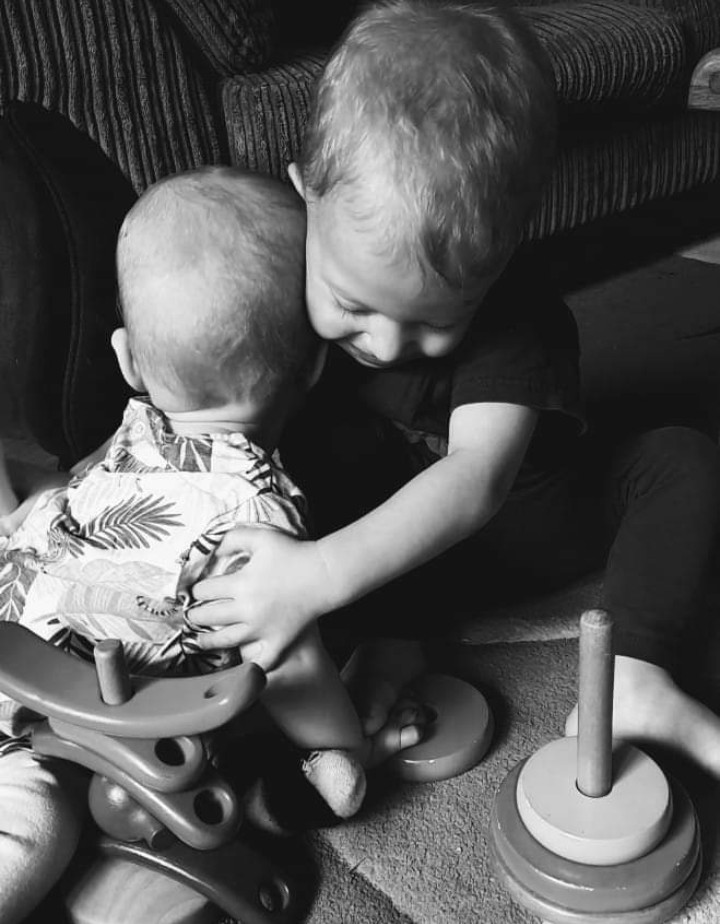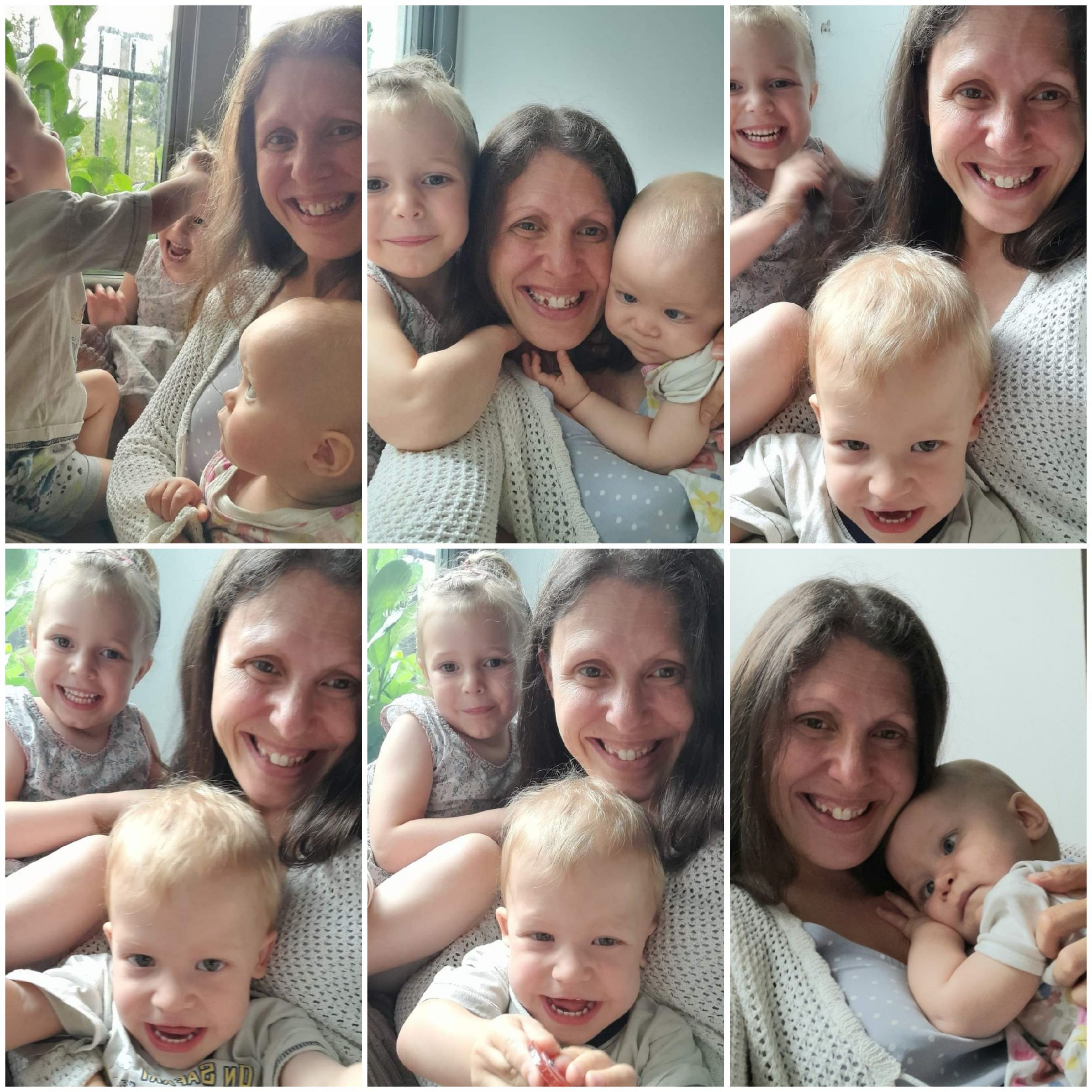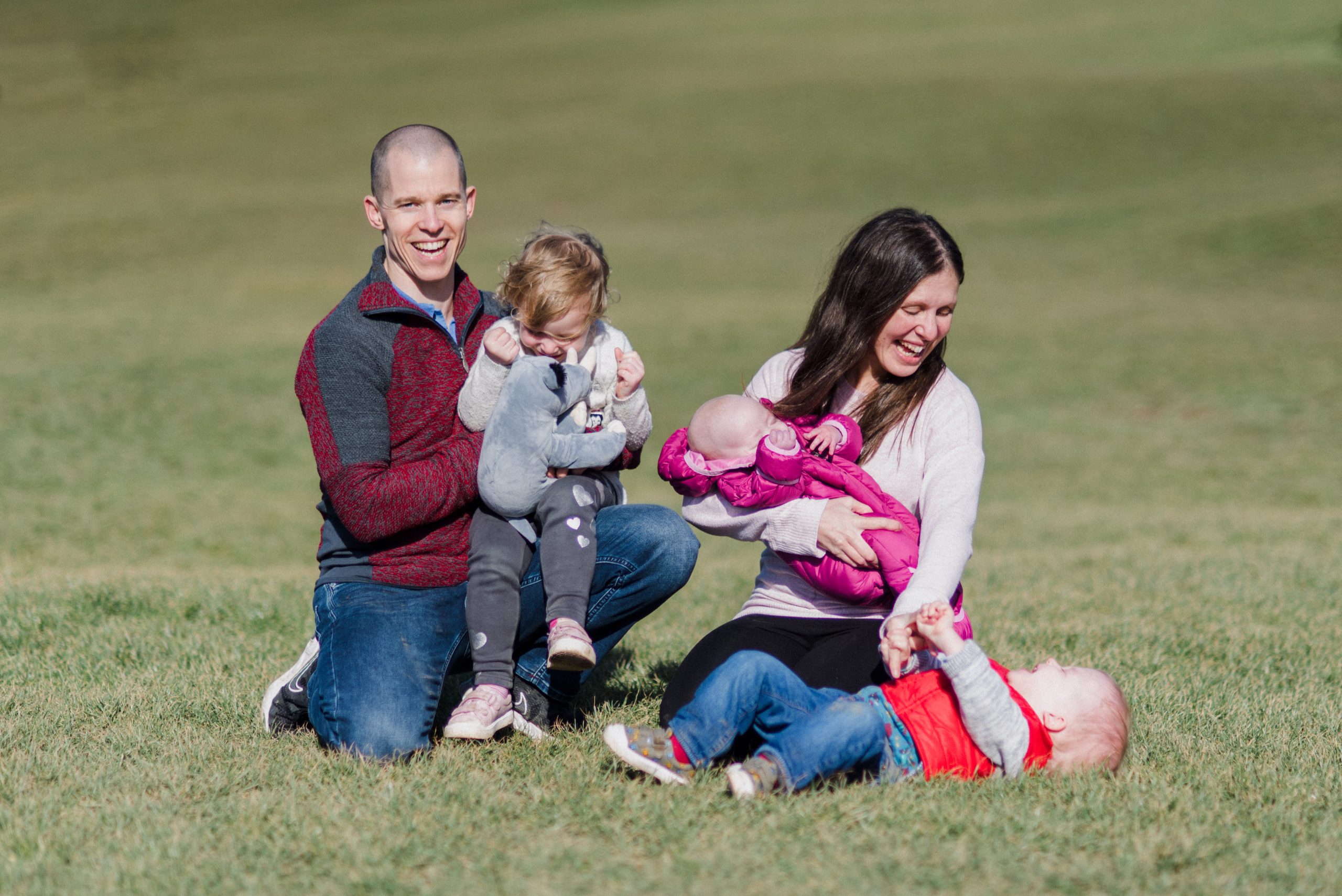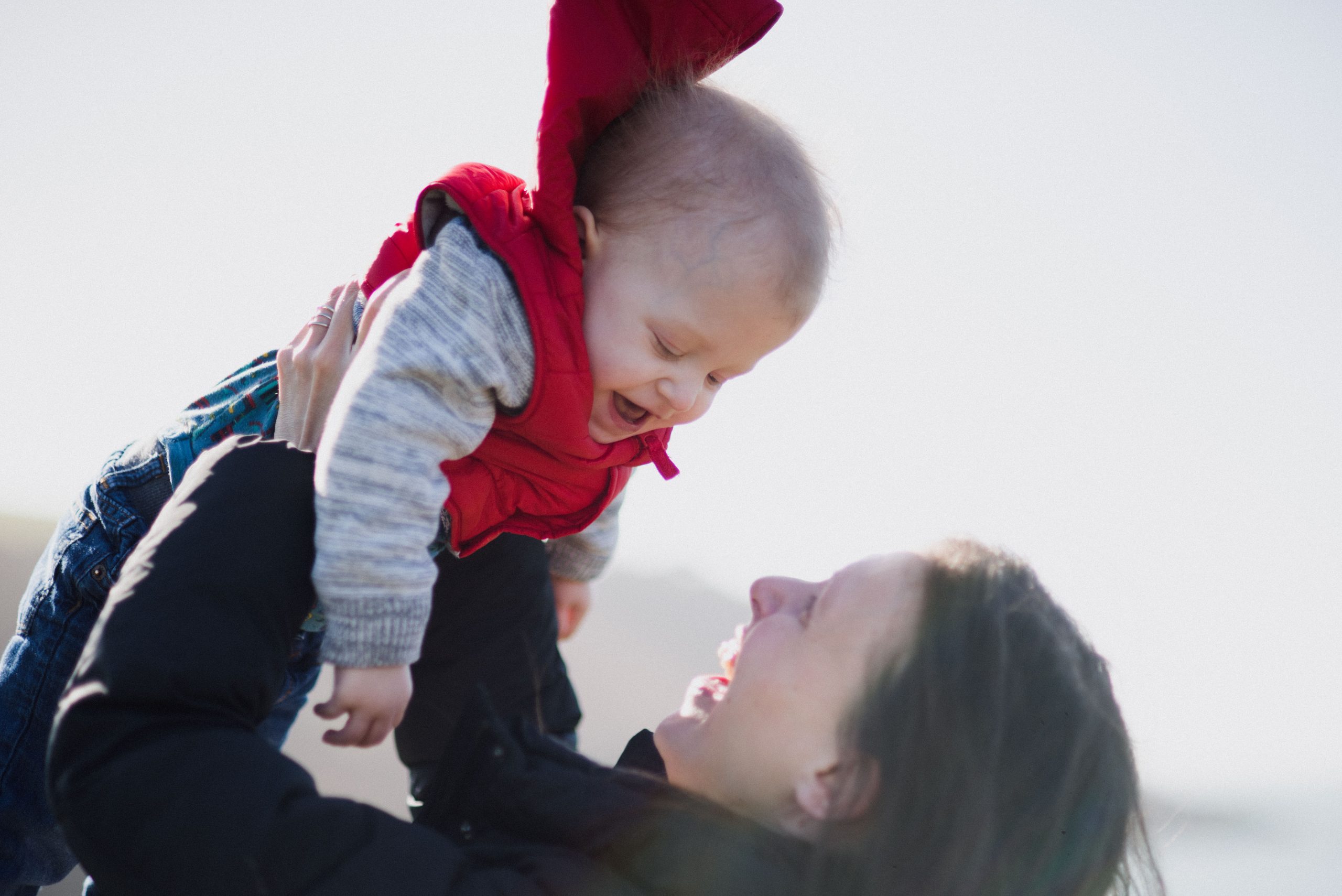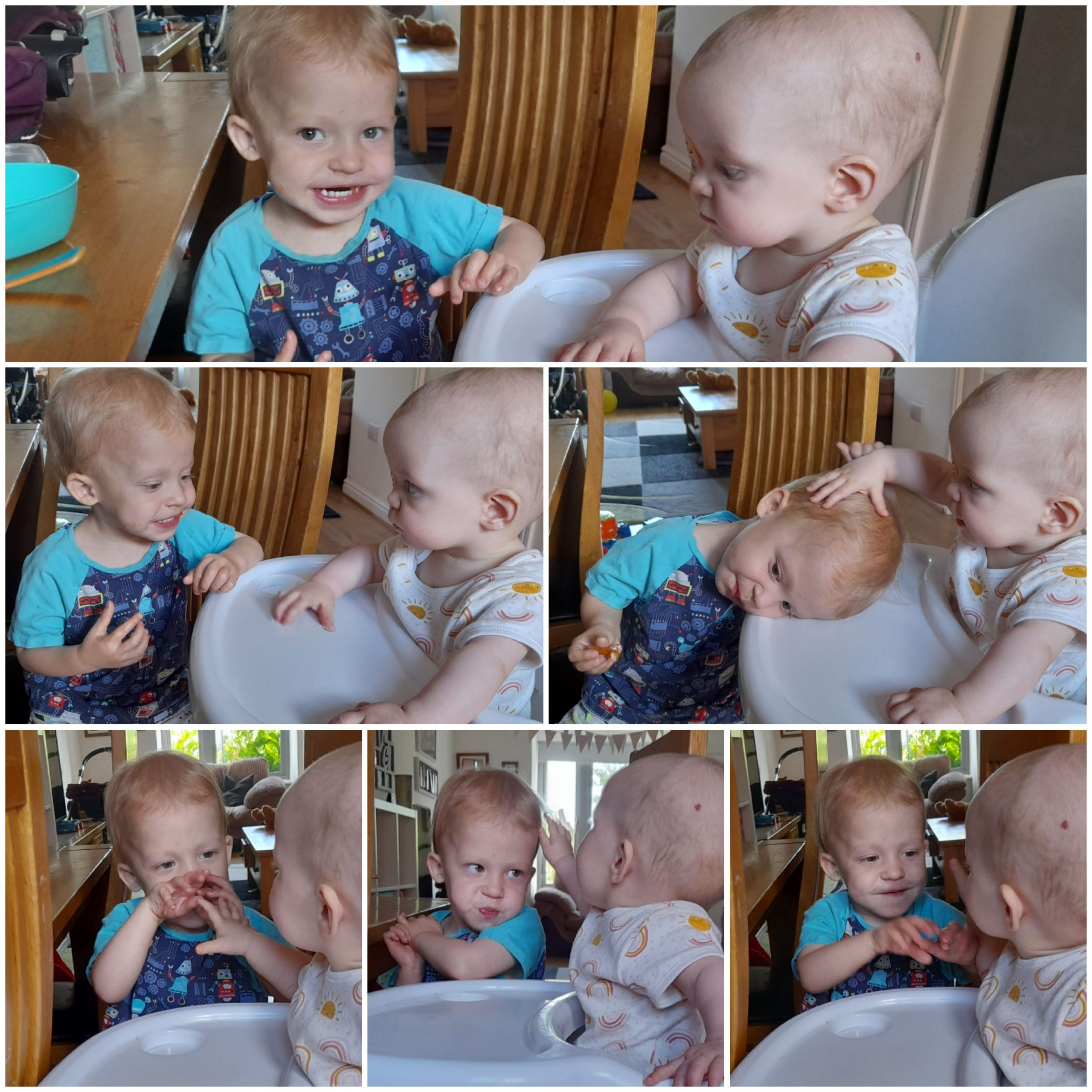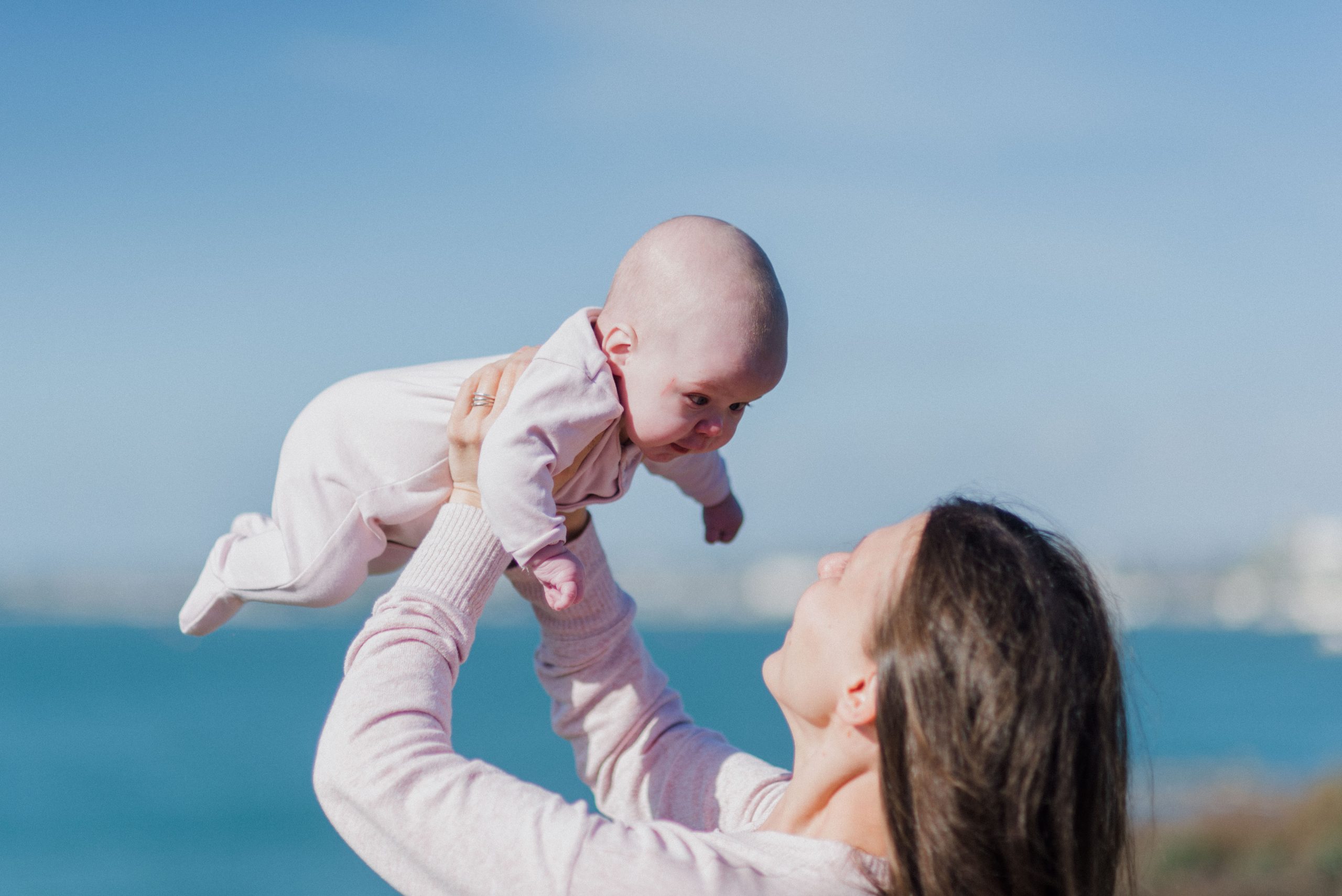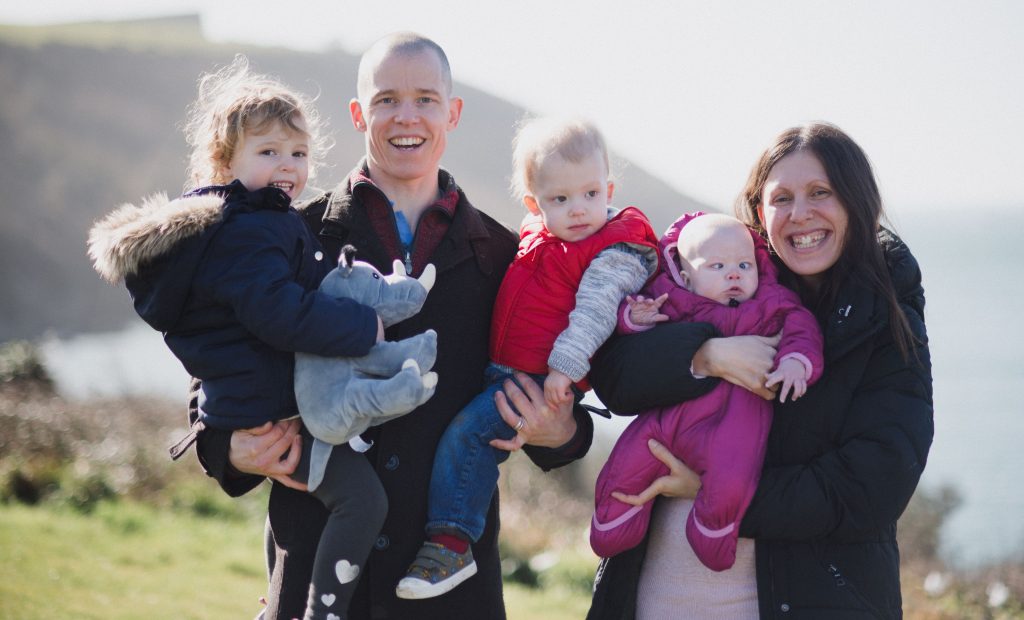Update from Becky
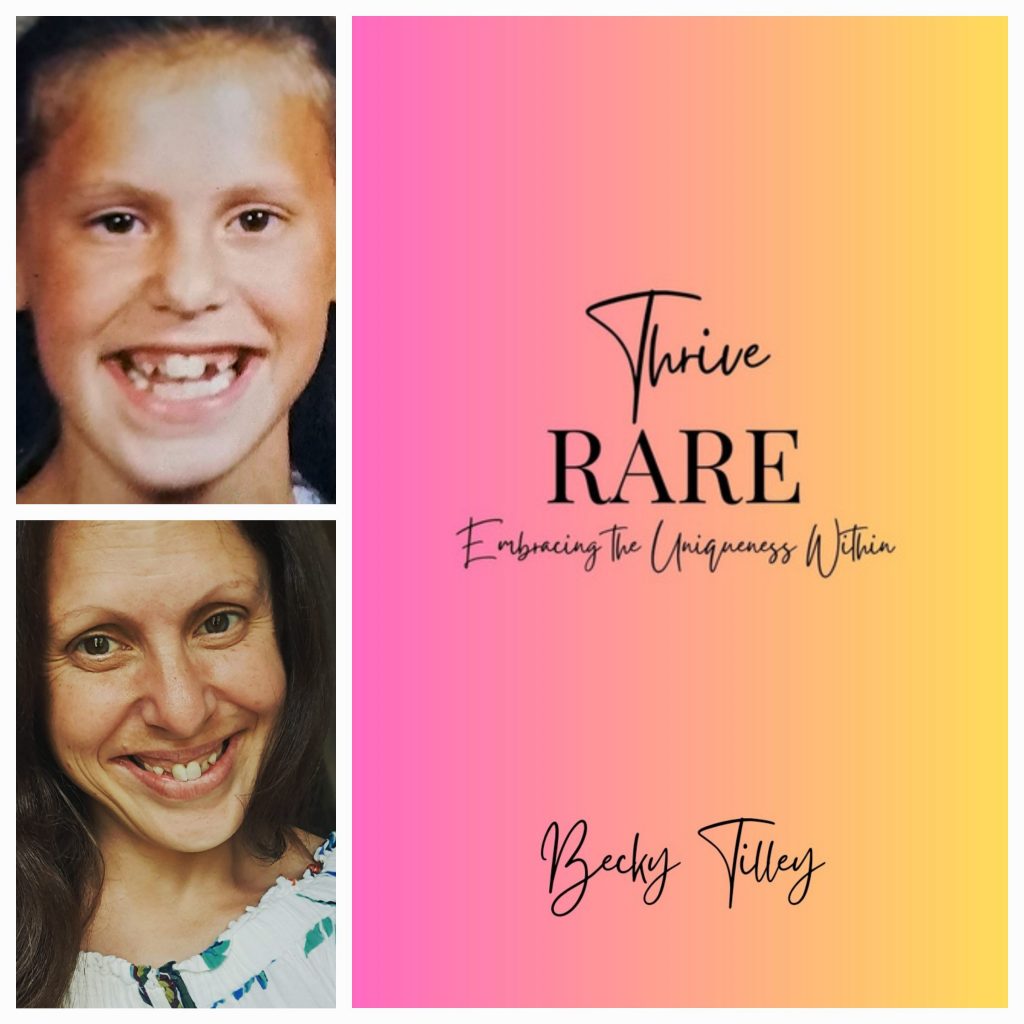 I am also thrilled to share that I am now a published author! My book, “Thrive Rare,” is available for purchase on Amazon. It is a testament to the transformative power of embracing our uniqueness and living authentically with purpose and passion. In the book, I delve deeper into my personal journey, offering additional guidance and inspiration for families on a similar path.
I am also thrilled to share that I am now a published author! My book, “Thrive Rare,” is available for purchase on Amazon. It is a testament to the transformative power of embracing our uniqueness and living authentically with purpose and passion. In the book, I delve deeper into my personal journey, offering additional guidance and inspiration for families on a similar path.RARE UNCERTAINTY
January 30, 2023
As somebody living with a rare disease and an anxiety disorder, uncertainty is a daily battle. Two of my three precious children have the same disorder and as a result have additional needs. As they grow their developmental delays are becoming more obvious. They are both progressing which I celebrate with my heart and eyes wide open, but we live in a world that breeds comparison and competition. Sometimes it can be helpful to compare your children to others because it can drive you to seek the additional support they need to reach their unique potential. But often, it can be destructive for you and them when the comparisons drag you down and make you feel less than or inadequate.
My son Joshua uses sign language and randomly attempts saying words. We recognize his words and we are always excited to hear them. We always know if he is happy or sad and what he wants or doesn’t want. He understands what we say very well. I count these all a blessing. However, if he will ever talk like most other kids remains uncertain. The disorder my children and I share has a range of severity and because of this, it is uncertain how they will develop. The uncertainty can make other people uncomfortable. Someone I know asked recently if I could try to get Josh talking by the start of nursery school. I simply replied that I will continue supporting Josh in every way and celebrate his progress, no matter how small. He will get there in his own time.
The same is true with Avary, who is 15 months old and gets around by crawling. She is so incredibly proud as she climbs the whole flight of stairs or pulls herself up to standing to be on to the sofa with her big brother and sister. I can’t be certain of what Avary and Josh will achieve but whatever it is, whether an inch or a mile, I will be there rooting for them with all the enthusiasm I have in me. Even if their learning journey is different to those around them, it is no less significant. I often catch myself fast forwarding to how they will do at school, if they will have good friends or be bullied like I was. Then I could go further – will they be able to work, live independently and find a partner? These are all natural questions to ask yourself as a parent but aren’t possible to answer. Uncertainty has become a constant companion in a more obvious way since becoming a rare mama but the truth is no parent can escape it. Even parents with neuro typical children will no doubt have their own anxieties and question to wrestle with about how their children will find their place in the world.
Both as parents and individuals the unknown will always be there, it just feels much more pressing when your children have additional needs to tend to. I have dealt with uncertainty anxiety by seeking every support available, talking to my devoted husband, close family members and good friends, as well as seeking the help and advice of my doctor and therapist. Being part of a global rare community that can relate to the added pressures and concerns of caring for children who need extra support has also helped. I am also learning how important it is to have the security of my own kindness, compassion, encouragement, and support as a way to combat uncertainty.
I encourage you to care for yourself. Let us as parents and primary caregivers, appreciate ourselves enough to show our children and others how it is done.
Handling Caregiver Isolation with Courage
As a mother of three beautiful children and caregiver to my two youngest who share the same syndrome as I, I knew instantly following our diagnosis what my family needed. We needed to mitigate the isolation that could so easily invade our lives if I didn’t take the steps needed to change it. I know from my own lived experience as a rare disease individual that the world can feel like a very lonely place without the right people around you. And as a mother, it is my responsibility to make sure my children are part of a community of kindness, authenticity, and encouragement; a community where they feel seen, heard, and valued. In order to achieve this, I knew I had to create it for myself first.
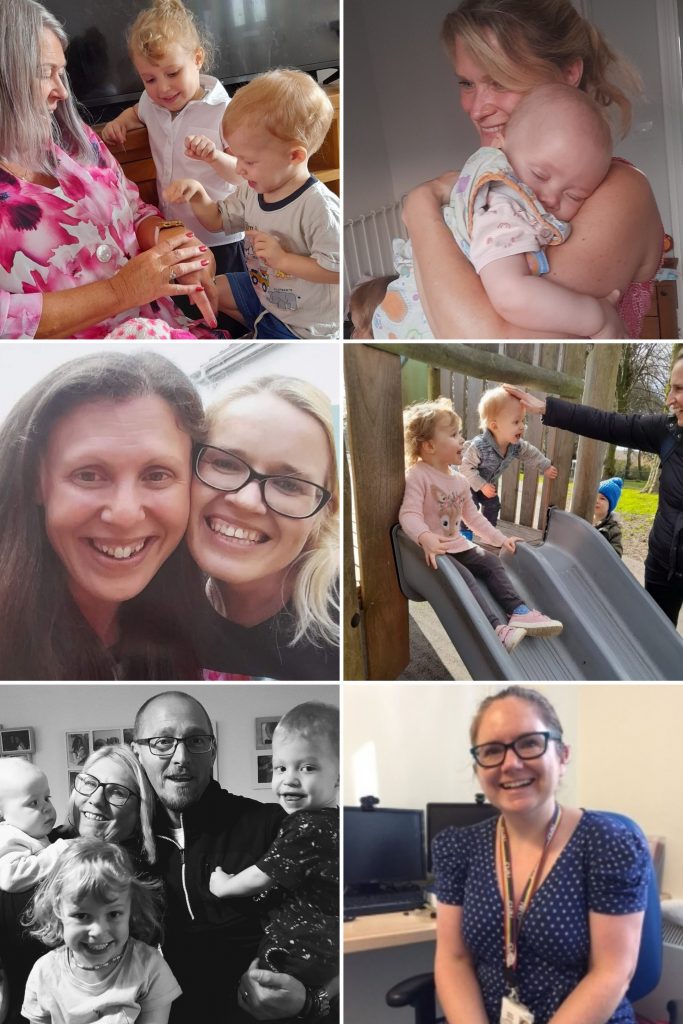 Family and friends were among the first people I shared the diagnosis with. At first many of them responded positively with their words, but over time their actions spoke louder – some stayed supportive, and others left us behind. It took time but we now have a great yet small circle around us of close family members and friends who love and care about us all very much. They celebrate every step of progress with us that our children take and accept them with joy as we do, just as they are. I have learned to value quality over quantity when it comes to who is a part of our rare, challenging, and wonderful journey as a KDVS family. I know who I can turn to when everything feels on top of me or when I am burned out and my tears are ready to burst their banks. This is so essential. I also feel very fortunate to have found a genetics counselor who from day one became a listening ear and valued confidante who has graced me with her continued support and encouragement.
Family and friends were among the first people I shared the diagnosis with. At first many of them responded positively with their words, but over time their actions spoke louder – some stayed supportive, and others left us behind. It took time but we now have a great yet small circle around us of close family members and friends who love and care about us all very much. They celebrate every step of progress with us that our children take and accept them with joy as we do, just as they are. I have learned to value quality over quantity when it comes to who is a part of our rare, challenging, and wonderful journey as a KDVS family. I know who I can turn to when everything feels on top of me or when I am burned out and my tears are ready to burst their banks. This is so essential. I also feel very fortunate to have found a genetics counselor who from day one became a listening ear and valued confidante who has graced me with her continued support and encouragement.
Part of ending isolation for my family included finding a community of individuals like us. Growing up, I did not know anyone with Koolen-de vries syndrome. Social media lets us make connections that were not previously available, and after the official diagnosis, I joined the International KDVS group. As I have such a sociable nature and I love to share encouragement where and how I can, I gladly introduced myself and my family. I shared what I had achieved in my life, and that despite a difficult start my Kool kid Josh was progressing well and loving life. I also shared that I was expecting another beautiful baby girl, and my concerns about the chance of her having KDVS too. I was delighted at the responses I received. It was wonderful to be welcomed into the group by so many who could equally share their journeys with me and the highs and lows that come with it. This was a huge comfort.
Joining a group of other KDVS families also taught me that no two journeys are exactly the same – every single person has their own unique manifestation of the disorder. In this community we see our differences as equally as important as our similarities. I like to share my story as authentically as possible within my group. I think we all benefit from not only sharing the good or the hard but the whole story. It is not always pretty or easy, but I think by sharing all aspects we offer the hope and perseverance to come through every struggle.
I have heard that a trouble shared is a trouble halved. To me a celebration shared is a celebration doubled and I believe we need both those sides of life expressed to live it out fully. I never shy away from celebrating my children to the fullest. I love letting the world know how my kids are thriving and achieving excellent and wonderful things in their own special way. This helps remove that feeling within me that we are traveling this road alone.
The diseases our children have may be rare, but the communities formed through them have created a supportive global community to share our journey with. I went on to create a United Kingdom KDVS Support Group and an international group- Mama’s Heart. Then I took it further and created Mamas Heart International Support Group which is for all rare disease families to join. They have both been designed as safe spaces to ask for advice or support, share celebrations and challenges, and to share my own journey as a rare woman, mama, writer, and advocate. Giving myself the purpose to raise awareness, spread hope and build community has lessened a great deal of the isolation that comes with being a caregiver.
Unique as they are, they are still siblings, together.
By Becky Tilley
My wonderful husband Carl and I have three children, Isabella 3, Joshua, 2 and Avary, 10 months old. Myself and my two youngest children share a rare chromosome disorder called Koolen-de vries. Since making others aware of our diagnosis, a few people have asked me if I worry about Bella, who is neuro-typical and whether she will struggle growing up with two siblings who have a rare syndrome.
And truthfully, after being told by a neurologist that Josh may never walk, talk, see, or hear, we deeply feared the impact it might have on Bella and wondered how the two would relate as siblings. Thankfully, our Josh with support from physiotherapy and early intervention (and a lot of love!) is absolutely thriving. He can keep up with Bella physically which is an enormous joy for us all. Still, I am sure that Bella would love to be able to chat back and forth with her brother as they play but she has adapted to how Josh communicates. She shares the same excitement her dad and I have for every milestone of progress Josh makes. Now she is doing the same for her little sister Avary who also has Koolen de vries.
For Bella, Avary and Josh are her siblings. I choose to find comfort in knowing that Bella doesn’t know any different as a big sister. I also believe that a lot of how Bella responds to her siblings’ differences is influenced by how my husband and I are role models for her. Besides providing the extra support Josh and Avary require, my husband and I treat them no differently than how we treat Bella. She sees everyday how we adore and encourage her siblings as well as her to learn, achieve and believe in themselves. As a result, she supports Josh by copying sign language and encouraging him to use it. She celebrates him by excitedly informing me of different sounds he makes in an attempt to say words. Josh has successfully learned to say two words (yeh and more) and Bella helps him practice by purposely asking him questions that he can answer with ‘more’ or ‘yeh’.
While Josh has only a few words he can say, he has an excellent understanding of words. He can follow simple instructions which Bella appreciates because sometimes it can help them play together. However, because he isn’t able to verbalize his wants and needs, he can also get really boisterous, especially with pokes for a game of “tag”. He likes to throw and run away with her toys – often with a giggle and cheeky smile as she chases after him. I remind Bella daily that Josh’s behavior is how he communicates. This can greatly annoy and upset her at times and other times she will run alongside him as they laugh together at his antics. It can be tricky to know how to respond but I do my best to discern when they just need to get on and accept each other and when I need to step in to maintain boundaries. There are times I need to tell Josh no and to calm down when he is being too much and his sister needs space. Equally I need to tell Bella at times to remember that he is actually just wanting to play with her, and she doesn’t always need to be so overly annoyed and upset by it. After growing up as the youngest of six children, I know that being wound up by each other is natural, and that just as with any siblings, they have their differences and similarities and good and bad days, but that ultimately the love between them is always there. They can be the best of play pals at times, which makes me so happy and thankful to see.
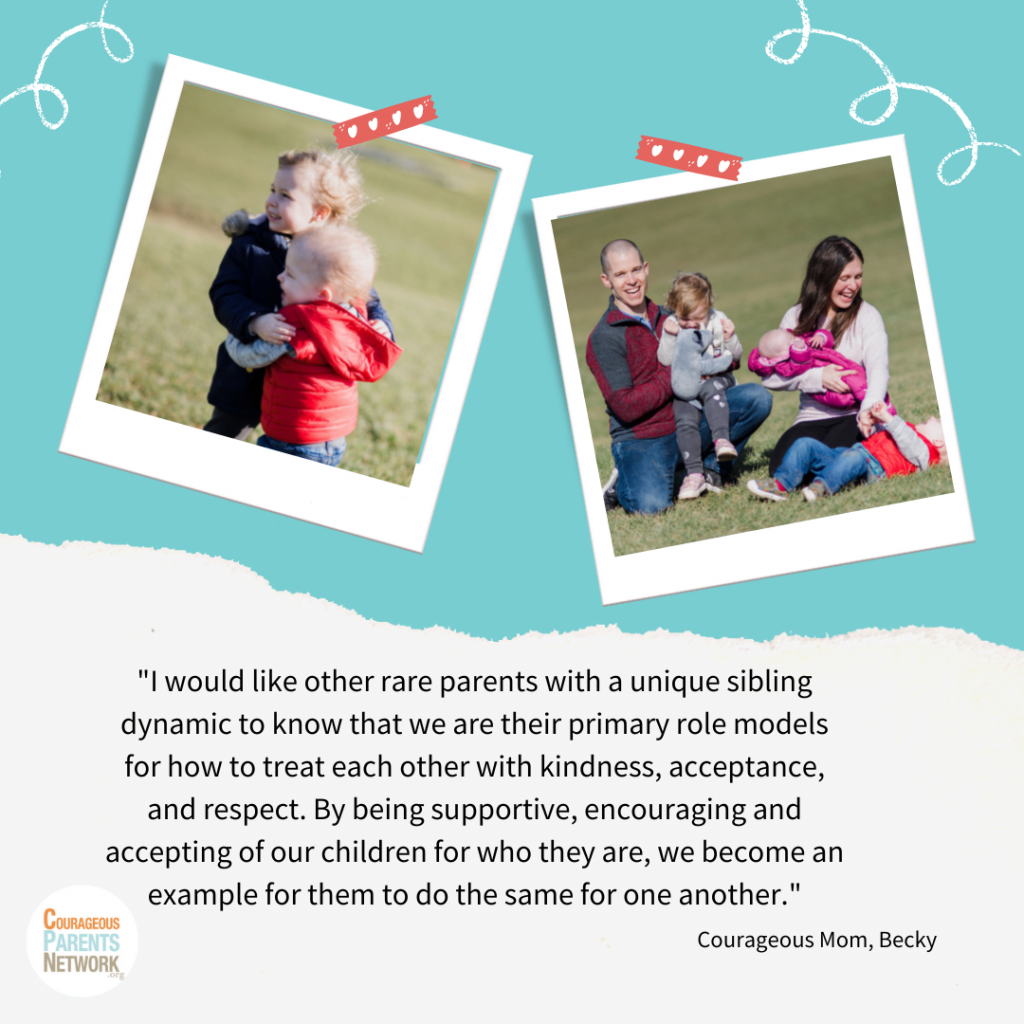 Bella and Josh may have their little scuffles but are both always very gentle and caring. When Bella and Josh see each other upset, they offer one another comfort, either with a hug or finding each other a toy. They do this for Avary too. It means a lot to us that they share a close and loving bond that grows stronger as they get older. I am glad that Bella, through her siblings, has learned that not every other child is like her and that everyone deserves love, appreciation, and respect. Recently her nursery school teacher told us that Bella is always very kind, caring and helpful towards a little girl in her class who also has special needs. This utterly warmed my heart as I know through her only family experience, she is learning inclusivity and to be accepting and friendly to those who are different. I am thankful too that Josh and Avary have a big sister to look up to, one who cares very much about them both and wants to help teach them new things.
Bella and Josh may have their little scuffles but are both always very gentle and caring. When Bella and Josh see each other upset, they offer one another comfort, either with a hug or finding each other a toy. They do this for Avary too. It means a lot to us that they share a close and loving bond that grows stronger as they get older. I am glad that Bella, through her siblings, has learned that not every other child is like her and that everyone deserves love, appreciation, and respect. Recently her nursery school teacher told us that Bella is always very kind, caring and helpful towards a little girl in her class who also has special needs. This utterly warmed my heart as I know through her only family experience, she is learning inclusivity and to be accepting and friendly to those who are different. I am thankful too that Josh and Avary have a big sister to look up to, one who cares very much about them both and wants to help teach them new things.
I am also thankful that Josh and Avary have in each other a sibling that can understand what it is to be rare and help them feel less alone in their rareness. I have no doubts that our three beautiful children will continue to test and challenge each other as they grow. I know my husband and I will keep nurturing and encouraging the bond between them and the love they share, so that no matter what happens in life they will always have each other for the journey.
About Becky



